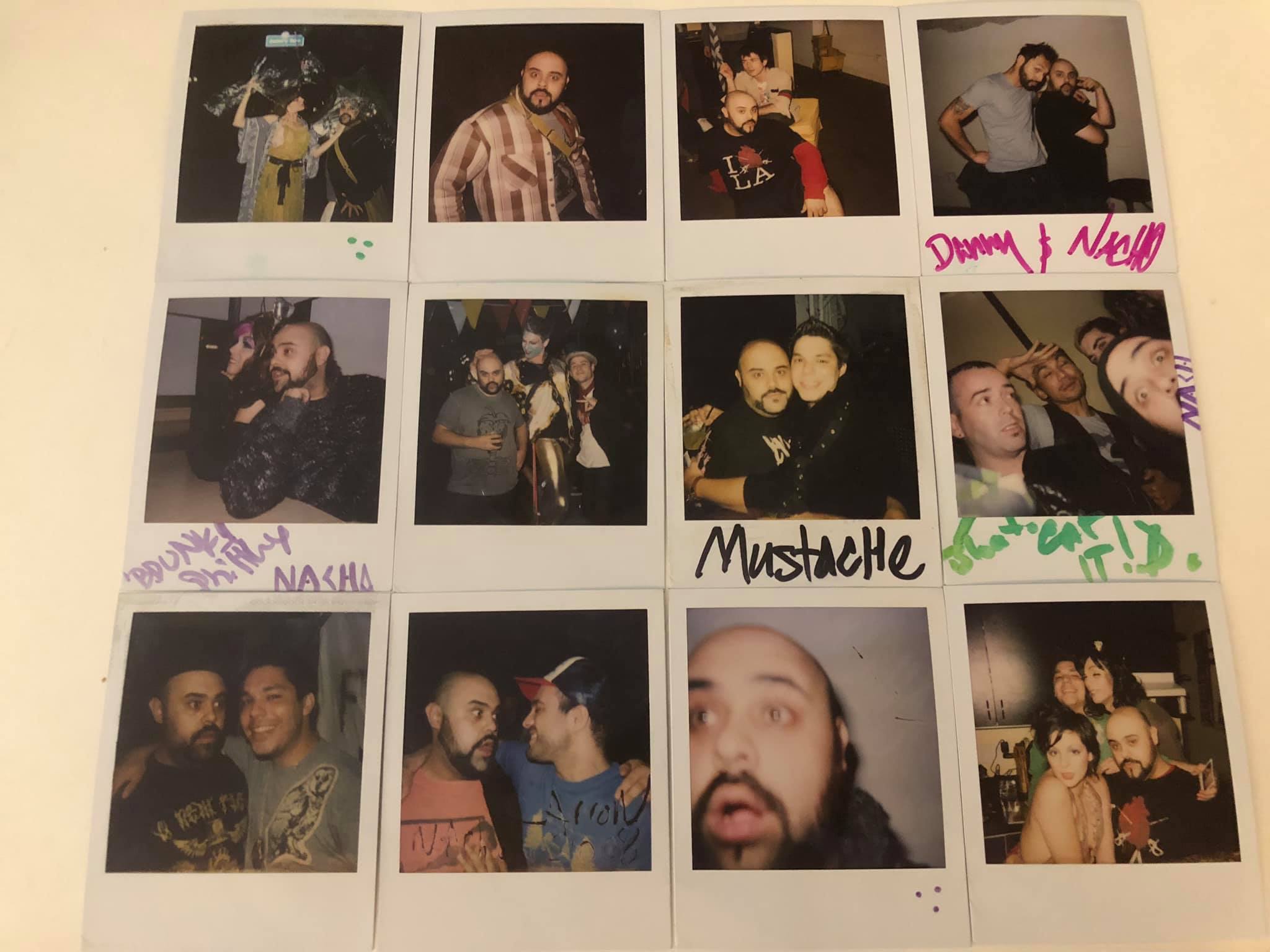[dropcap size=big]I[/dropcap]gnacio “Nacho” Nava, nightlife promoter and co-founder of Mustache Mondays and a beloved impresario of the downtown scene, has died. Nava passed on Saturday, January 19, prompting tributes from members of the diverse underground queer scene that he helped develop.
The Los Angeles Times reported Nava died after a bout with pneumonia.
His signature night, Mustache Mondays, was founded in 2007 with the goal of creating an intersectional scene that would become a nightlife “home” for segments of the gay community that were not always reflected in the established LGBTQ enclave of West Hollywood. In downtown Los Angeles, partygoers — largely people of color — found a community among transgender, nonbinary, lesbian, gay, and other subgroups that were often discriminated against in WeHo.
“It wasn’t just about the party,” said producer Anita Herrera, a longtime friend and collaborator of Nava. “Nacho was creating spaces for people to be themselves and feel free. The spaces he pioneered were for the creative community without judgement. There were no social, class requirements.”
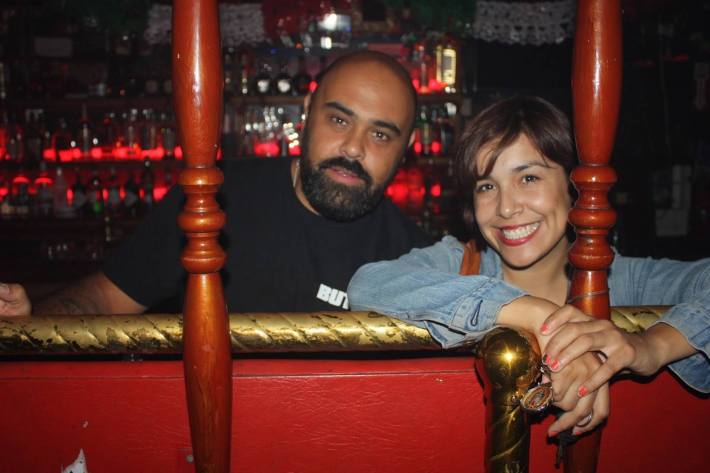
The party began as an idea among friends.
Looking to split with a boyfriend at the time, photographer Danny Gonzalez moved in with Nava and DJ Josh Peace, another Mustache co-founder, at the Hellman Building lofts in downtown. Nava and Peace invited Gonzalez to help them with a concept for a gay club on a Monday night. They zeroed in on the now-defunct club Crash Mansion. The three met with Crash Mansion’s manager at Rocket Pizza, which is now Bar Amá, just downstairs from their apartment.
“We told him we could make him a certain amount of money on the worst night of the week, which is Monday,” Gonzalez remembered. “We did and everybody was over the moon.”
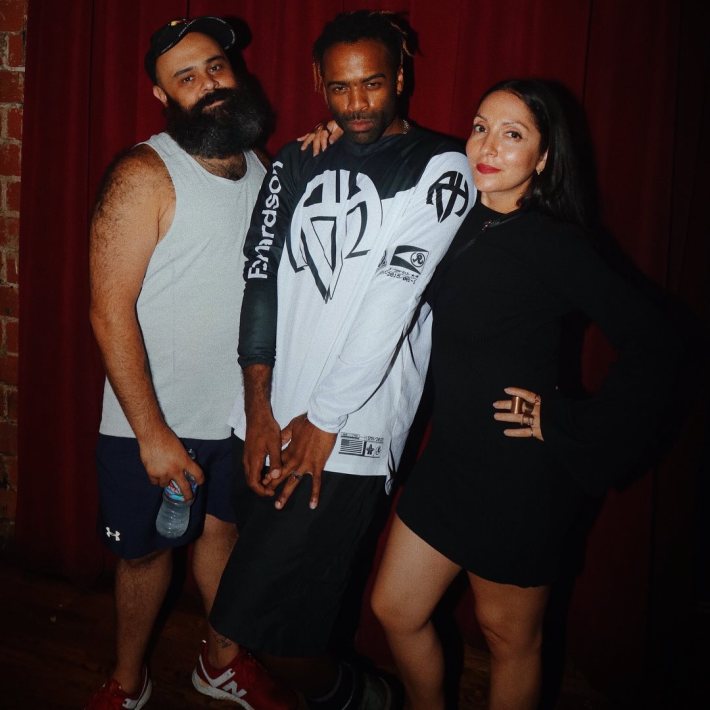
[dropcap size=big]M[/dropcap]ustache Mondays eventually found a home at La Cita, an old-school bar once known for corridos and banda nights, next to the Grand Central Market.
The night became famous for the cutting-edge fashion looks of its regulars — who often stood in long waiting lines on Hill Street — yet maintained a sense of openness to queer people of every shape, size, and color. In short time, Gonzalez said Nava became “the mayor of downtown.”
'He adopted people, and he didn’t do it for the recognition.'
“Nacho had always been a fan of fashion, music, art and fringe culture. With Mustache, we had a place where a choreographer could workshop their piece, or a recording artist could test-out their new song in front of a live audience,” Gonzalez said.
He lived at the loft with Peace and Nava for a year, and recalls that it “was like living in a sitcom.”
“That one year in the loft I never got any asleep. We would closed down the bar at 2 am, and there would always be a group of 30 people when the bars closed. We would walk as a big group to the loft. It was our own little family,” he said. “Our upstairs neighbors were our friends and would come dancing to the club.”
RELATED: Jesus Was My Homeboy ~ RIP Kevin Lee Light aka Kevin Short
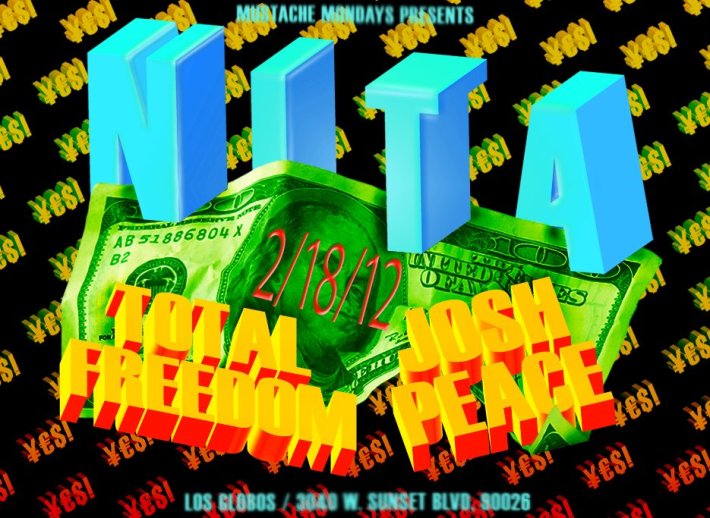
Herrera and Gonzalez recalled some of Nava’s post-club haunts; when Mustache Mondays was at Club 740, Nava enjoyed going to Tacos Mexico, pancakes at Farmer Boys and The Pantry.
“When he was feeling boujie, he liked going to Pacific Dining Car for steak and eggs,” Herrera said.
Mustache Mondays paved the way for a diverse queer scene as other parties like Shits & Giggles and A Club Called Rhonda joined downtown’s offerings.
Over the years, the club night saw now-legendary performance by artists or signers, such as Kelela, Ryan Heffington, Nina McNeely, SanCha and many others. With time the legend of the club grew with drag performers and club kids who sought an alternative to the “white, shiny go-go boys” and pop that other clubs offered. Nava’s vision embraced individuality, blending vogue beats and hip-hop with remixes of chart-topping hits.
Much of the scene was diligently documented by photographer Quentin Belt.
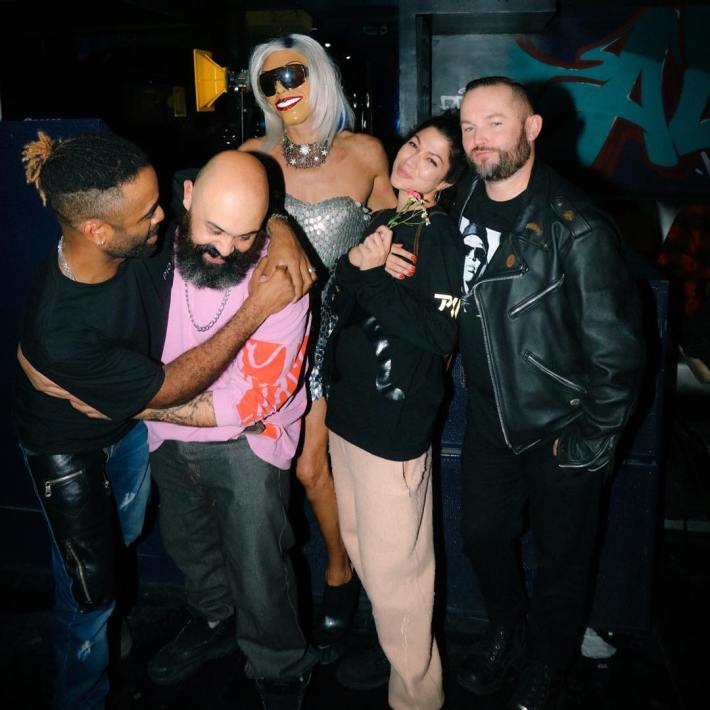
[dropcap size=big]'P[/dropcap]eople like to say how diverse L.A. is, but it’s so segregated, especially among gays. There are so many divisions,” Nava lamented in the Red Bull Music Academy Daily. “Your zip code depicts who and what you’re about, and who you hang out with, even how you identify. There’s so much incredible shit out in the world to discover. It’s baffling why you wouldn’t want to support and feature that.”
Aside from promoting, Nava also mentored and inspired queer artists who were bubbling up in the scene. Gonzalez called Nava a “daddy” in his more philanthropic efforts, and his little-seen acts of support — such as once paying for a friend’s art-school tuition and clothes.
In 2008, proceeds from one night of Mustache Mondays were donated to the Los Angeles LGBT Center’s Jeffrey Goodman Special Care Clinic, with Nava reserving the funds to go towards covering prescription costs for HIV patients. “He adopted people, and he didn’t do it for the recognition,” Gonzalez said. “He invested in what he wanted to see. If he saw someone who was marginalized, then that’s who he wanted to lend his voice to.”
Herrera and Nava first collaborated in 2013 on the club night ViperXL, and would later work together on events in Mexico City. They also collaborated on fundraising efforts after the 2017 earthquake in Mexico, and Hurricane Maria. Herrera recalls she and Nava were both proud Angelenos, and took pride in creating platforms that were “for L.A., by L.A.”
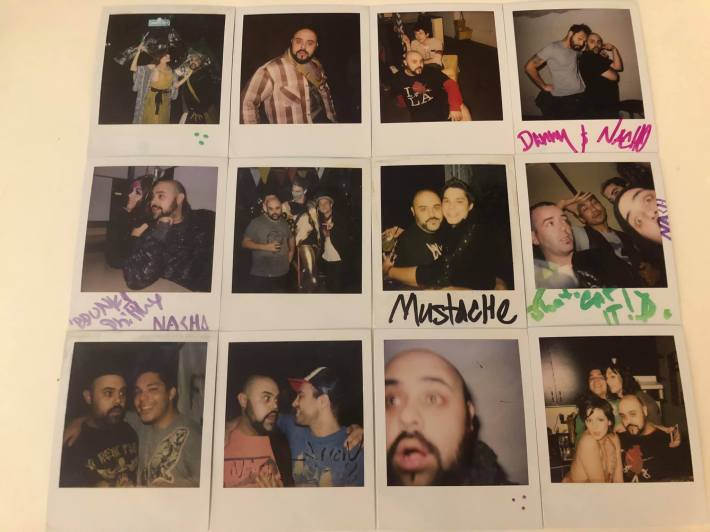
Herrera also remembers regularly eating at El Tapatio, near Nava’s home in Boyle Heights, where Nava enjoyed the albondigas and playing Chalino Sanchez and Juan Gabriel on the restaurant’s jukebox. His favorite song by Chalino Sanchez was “Nieve de enero.”
A legacy and memorial fund has been set up through GoFundMe, which will go towards a celebration of life event and to benefit those experiencing homelessness in the LGBTQ community. Nava is survived by his father, Ignacio Sr., mother Diana Mayer, brothers Robert, Angel and Giovanni, and sister Vee Beltran, and numerous others who count him as part of their chosen family.
Nacho’s Celebration of Life will take place Sunday, Feb. 3 at The Resident in downtown. The event is 21 and over, and guests are encouraged to bring photographs, flowers, and offerings.
RELATED: Lesbian, Latina, Large: The Unapologetic Artwork of Laura Aguilar ~ An Image Gallery
